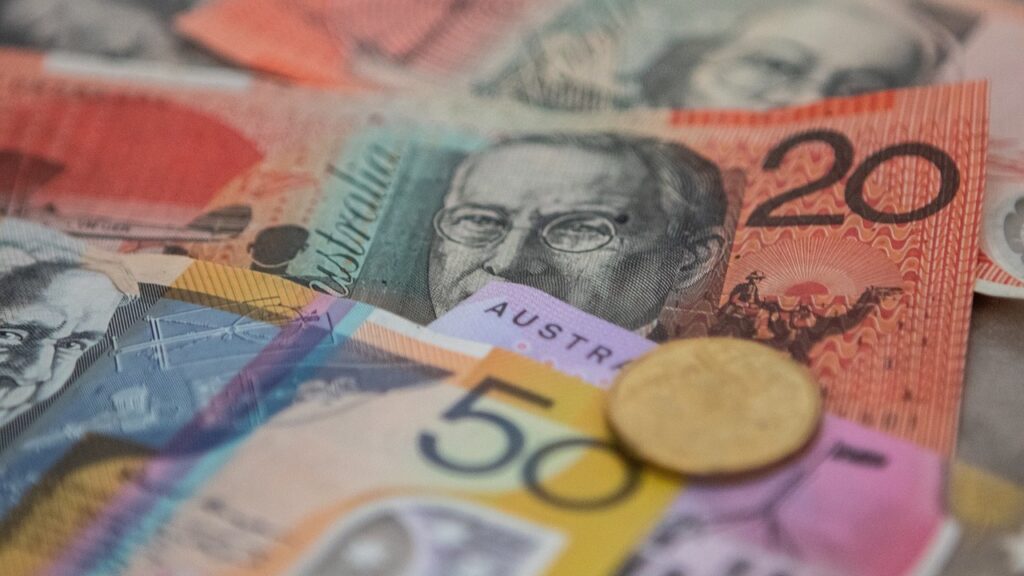by Peter Schiff, Schiff Gold:

Australia has become the front line in the war on cash with an aggressive effort to ring physical money out of the economy.
Over the last financial year, more than a billion dollars worth of physical cash disappeared from circulation, according to data released by the Reserve Bank of Australia (RBA). The Australian news service 9News called it “the strongest sign yet” that the country is moving toward a cashless society.
The number of $50 notes in circulation charted the sharpest decline.
TRUTH LIVES on at https://sgtreport.tv/
Australia transitioned from pounds to Australian dollars in 1966. Every year since then, the number of notes in circulation had increased up until this year.
Meanwhile, three of Australia’s ‘big four’ banks recently opened cashless branches, and according to the RBA’s website, it is exploring a central bank digital currency.
But while the amount of cash available has decreased, Australians increasingly want to use cash. An RBA survey of consumer trends reveals that 33% of Australians consider themselves “low cash users” meaning they use physical money for less than 20% of personal transactions. That was down from nearly 50% in 2019.
And ironically, cash transactions increased during the COVID pandemic despite the big push for contactless payments.
RBA cash withdrawal figures as of April revealed the usage of cash remains stable. Australians averaged 30 million cash withdrawals a month. That was basically unchanged year-over-year.
In July, Australians protesting the push toward a cashless society vowed to make all of their purchases using cash for a week. “Pay with cash only for everything that you can,” one tweet read. “Please be part of this.”
It appears the powers that be in Australia have decided that if they can’t convince Aussies to go cashless by choice, they’ll force their hands by simply eliminating cash from the financial system.
WAR ON CASH
Australia’s effort to wring cash out of circulation is part of a broader war on cash that has been raging for more than a decade.
In May 2016, the European Central Bank announced it would stop producing and issuing 500-euro notes by the end of 2018. Not long before the EU announcement, a former Obama economic adviser/ex-Treasury secretary floated the idea of eliminating the $100 bill in the US. The following year, the International Monetary Fund (IMF) published a working paper offering governments suggestions on how to move toward a cashless society even in the face of strong public opposition.
Officials sell the war on cash by touting the convenience of digital payments. They also claim that eliminating cash will help stop criminals who use physical money to evade tracking and detection. But there is a darker side to the move toward a cashless society – the promise of control.
Without physical cash, the government and the government/cartel banking system have complete control of your money. That means banks and governments increase their control over you. They can collect maximum taxes and fees, they can track your purchases, and they can even manipulate your spending habits by imposing negative interest rates that effectively charge you for saving. In the worst-case scenario, the government could even shut off your ability to make transactions.
Needless to say, many everyday people like cash and the relative freedom it provides. In a worst-case scenario, they can at least shield their wealth by shoving cash under their mattresses. You can’t do that if there isn’t any cash.
The advent of central bank digital currencies (CBDCs) has taken the war on cash to the next level.
Digital currencies exist as virtual banknotes or coins held in a digital wallet on your computer or smartphone. The difference between a central bank (government) digital currency and peer-to-peer electronic cash such as bitcoin is that the value of the digital currency is backed and controlled by the government, just like traditional fiat currency.



